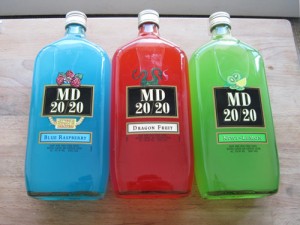Gleanings – Best Till Last!
After Epiphany, January 7, 2013
John 2:1-11
“But you have kept the good wine until now.”
In the story, the better wine had come later in the affair. Poor or lesser wine was served first. The good or better wine followed. Chronologically speaking the statement makes perfect sense.
But John, as opposed to Matthew, Mark and Luke who are more concerned with that which is chronological, is concerned with the theological. In Jesus, the best that is coming has come. All else is inferior by comparison.
Instead of the Law and those churchy folks who would lord it over us, we get the good wine last. Rather than MD 20/20 (which comes in a variety of flavors, few associated with the history of wine) we get a Silver Oak cabernet. Theologically we get grace. We are loved in spite of who we are. We get a Savior who is less interested in protocol (“My hour has not yet come.”) and more interested in meeting where we are where we have real need (“true” as opposed to “felt” – I feel like I need a restored 67 Mustang. Jesus likely thinks otherwise.).
wine) we get a Silver Oak cabernet. Theologically we get grace. We are loved in spite of who we are. We get a Savior who is less interested in protocol (“My hour has not yet come.”) and more interested in meeting where we are where we have real need (“true” as opposed to “felt” – I feel like I need a restored 67 Mustang. Jesus likely thinks otherwise.).
So instead of Law and the proverbial Damocles sword over my head and the anxiety it produces, I get love in spite of who I am. That’s grace! I can live a life of greater integrity because I can admit who I am, a sinner. I can rip off the façade of this house and reveal what is inside because I am loved in spite of it and I can rest assured there is power to transform it.
That is revolutionary. History really did turn on the hinge of a Bethlehem stable.
January 7th, 2013 at 4:23 PM
The new wine in Jn. 2 does fit into the earlier contrasts in 1:14 (the Word became flesh, full of grace and truth, and we saw his glory) and 1:16-17 (from his fullness we all received, grace upon grace, for the law was given through Moses; grace and truth came through Jesus Christ). Likewise, in 1:31-34 John the Baptist contrasts his baptism with water and the greater baptism with the Spirit that Jesus will bring; John saw the Spirit descend from heaven and remain on Jesus. Thus the Jewish water for purification in Jn. 2 can be contrasted with Jesus’ new wine; this wine is a “sign” of the glory of Jesus, which he revealed to his disciples (2:6-11). A later similar contrast is in Jn. 4 where Jesus compares the natural water of the Samaritan woman with his living water which he can give (and in 7:38-39 Jesus portrays the Spirit as living water). Thus the primary grace and glory of Jesus is the transforming Spirit he gives to his disciples; in Jn. 14-16 Jesus will emphasize this Spirit of truth (the grace and truth that filled him) as the great gift he will give them after he leaves them (through death and resurrection).